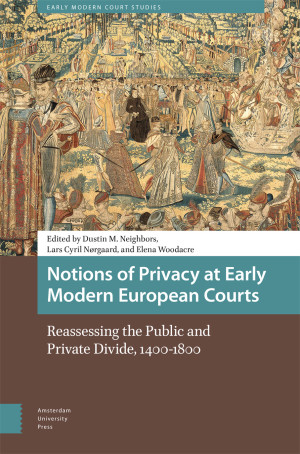Grand, extravagant, magnificent, scandalous, corrupt, political, personal, fractious; these are terms often associated with the medieval and early modern courts. Moreover, the court constituted a forceful nexus in the social world, which was central to the legitimacy and authority of rulership. As such, courts shaped European politics and culture: architecture, art, fashion, patronage, and cultural exchanges were integral to the spectacle of European courts. Researchers have convincingly emphasised the public nature of courtly events, procedures, and ceremonies. Nevertheless, court life also involved pockets of privacy, which have yet to be systematically addressed. This edited collection addresses this lacuna and offers interpretations that urge us to reassesses the public nature of European courts. Thus, the proposed publication will fertilise the grounds for a discussion of the past and future of court studies. Indeed, the contributions make us reconsider present-day understandings of privacy as a stable and uncontestable notion.

